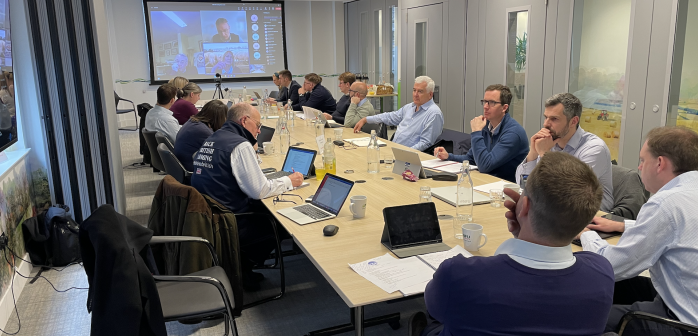Producer and allied industry members of the NPA’s Pig Industry Group (PIG) have pointed out the flaws in Defra’s plans to introduce mandatory animal welfare labelling in the UK.
The Department is expected to issue a formal consultation on the proposals at some point in the spring, following discussions with animal welfare campaigners and the farming industry.
The proposals currently focus on pork, poultry meat and eggs. Defra’s plan is to inform consumers of the system of production on fresh cut and ‘minimally processed’ products with mandatory labels, such as ham and bacon.
The Department is looking at a five tier system, but it doesn’t correlate to the UK’s existing pork provenance code, which includes include free range, outdoor bred and outdoor reared categories.
It believes the policy, which has been strongly pushed by animal welfare NGOs, would give consumers a clearer indication of how pork and other products are produced and that it could help drive improvements in welfare standards. It said its proposals ‘seek to simplify and clarify existing welfare labels’.
Confuse consumers
However, when a Defra official involved in drafting the proposals delivered a presentation on the proposals at the PIG’s latest meeting in London last week, PIG members highlighted the potential to mislead and confuse consumers, the disruption and added costs for the supply chain and the basic premise on which the labelling system is based.
They pointed out that the pork sector already has a range of well-understood labels that clearly signpost different types of production, including organic, free range and outdoor bred, which all help inform consumer choice.
Adding a new labelling system is therefore unnecessary and could serve to confuse consumers, particularly alongside other current and future labelling requirements such as nutritional and environmental, PIG members pointed out.
They also highlighted the added logistical difficulties and costs the move would entail for the supply chain, particularly in processing plants, in order to segregate pork products into the right category. This process will be much harder for pork than, for example, eggs and chicken, as different parts of a single pig carcase can go into many different markets.
But arguably the biggest concern is that the labelling system could unfairly demonise Red Tractor indoor production, with it being presented in the fourth out of five welfare categories.
This wouldn’t reflect true welfare standards, according to NPA chief executive Lizzie Wilson, who asked whether Defra would accompany the labelling system with a clear explanation to consumers that system of production does not necessarily equate to the welfare of animals in it. She pointed out that numerous other factors, primarily the quality of stockmanship, have just as big an influence.
The veterinary representative warned that there was a danger of going down the road of ‘perceived welfare’, while producers said they struggled to see how the move would improve animal welfare on farm.
Listening to industry?
Another concern voiced was whether Defra was listening to industry concerns. All the points that had been raised during the PIG meeting had previously been put to Defra by various industry representatives, including retailers and processors, in different forums. Yet there was no sign the Department, which seems determined to go ahead with the policy, was taking these concerns on board.
After the meeting, NPA senior policy Rebecca Veale said: “We have a number of concerns about Defra’s plans for welfare labelling, which, as PIG members very clearly pointed out to Defra, has the potential to add unnecessary costs and burdens to the industry, while doing nothing to improve consumer understanding of pig production or pig welfare.
“We have a perfectly good labelling system in place already for pork – and the industry already offers consumers a range of high welfare options at different price points.
“We will continue to make our feelings known, and we hope that Defra will start to take our concerns on board.”
A Defra spokesperson said: “We’ve committed to consult on improving and expanding mandatory animal welfare labelling. Ahead of a consultation, we have been engaging with industry to design reforms that minimise burden and costs and build on existing labels and assurance schemes.”




